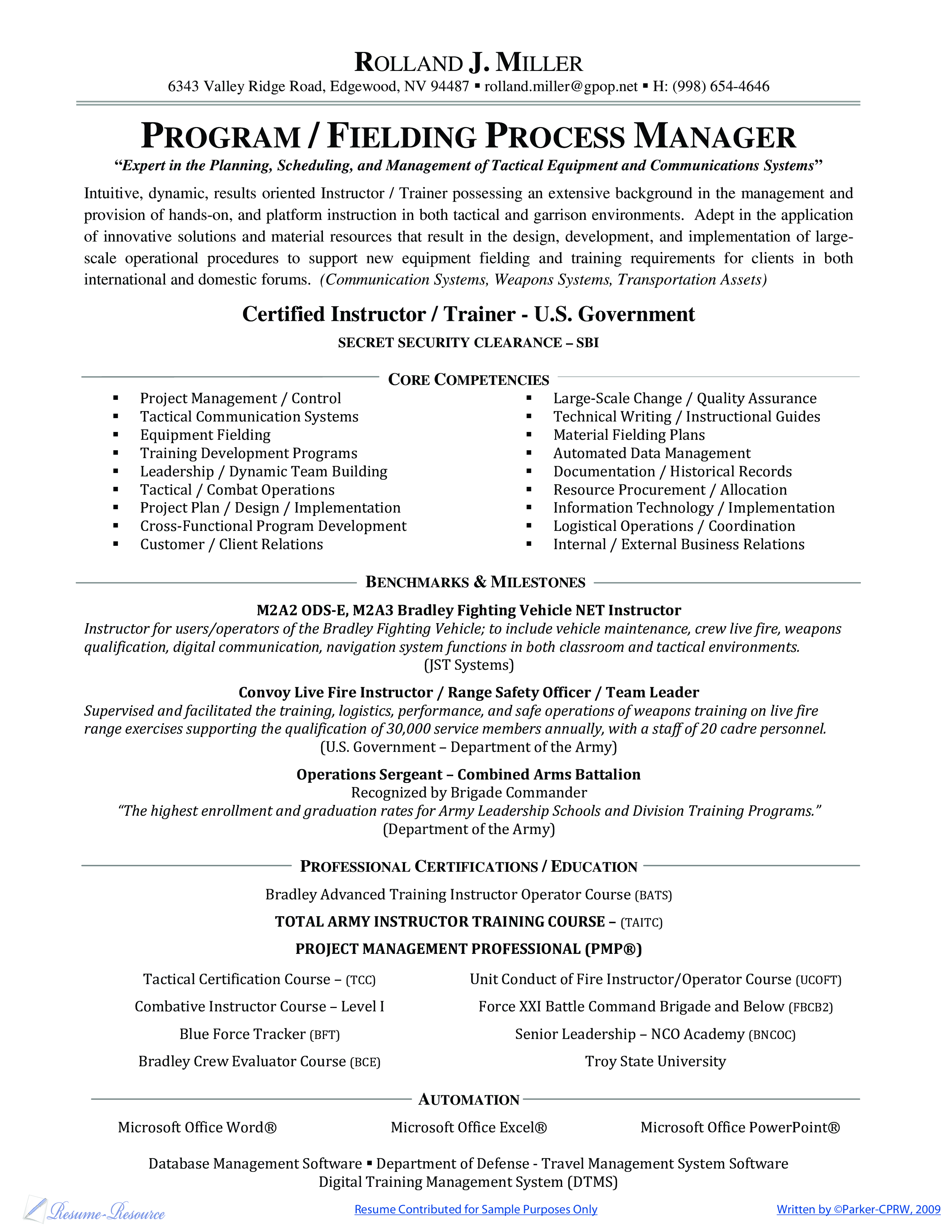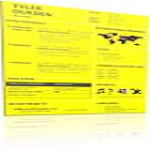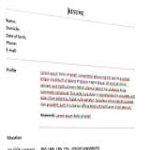Procesmanager CV

Opslaan, invullen, afdrukken, klaar!
De beste manier om een Procesmanager CV te maken? Check direct dit professionele Procesmanager CV template!
Beschikbare bestandsformaten:
.pdf- Gevalideerd door een professional
- 100% aanpasbaar
- Taal: English
- Digitale download (188.26 kB)
- Na betaling ontvangt u direct de download link
- We raden aan dit bestand op uw computer te downloaden.
Resumé beheer opleiding CV Voorbeeld leger leger Leiderschap Technologie professionele certificatie Leger Instructeur Naleving van de regelgeving Afdeling Defensie van de Verenigde Staten Militair CV hervat formaat militair CV monster
How does a Process Manager perform their duties? What should a Process Manager's resume include? Our resume template is carefully designed to help you craft the perfect resume. Download it now and start applying for jobs!
Our resume templates have ways to grab your employer’s attention. Every other essential piece of your document is covered. After downloading and filling in the blanks, you can customize every detail and appearance of your resume and finish in minutes.
A Process Manager Resume is a document that provides a comprehensive summary of an individual's qualifications, skills, work experience, and achievements in the field of process management. Process managers are professionals responsible for designing, implementing, and optimizing business processes within an organization to improve efficiency, productivity, and quality. A well-crafted Process Manager Resume is essential for showcasing the candidate's expertise and qualifications for such roles.
A Process Manager plays a crucial role in an organization by overseeing, designing, optimizing, and managing various business processes to enhance efficiency, productivity, and overall performance. Here's how a Process Manager typically performs their duties:
- Process Analysis and Assessment:
- Identify existing business processes and workflows within the organization.
- Analyze these processes to understand their strengths, weaknesses, bottlenecks, and inefficiencies.
- Collect data and metrics to evaluate process performance.
- Process Design and Improvement:
- Collaborate with relevant stakeholders, including department heads, team members, and subject matter experts, to design and implement improved processes.
- Utilize process modeling techniques and tools to create visual representations of current and future processes (e.g., flowcharts, diagrams).
- Identify opportunities for automation and technology integration to streamline processes.
- Develop and document new standard operating procedures (SOPs) and process documentation.
- Change Management:
- Introduce and implement changes to processes and workflows.
- Communicate changes effectively to team members and stakeholders, addressing concerns and ensuring understanding.
- Provide training and support to employees as they adapt to new processes.
- Continuous Monitoring:
- Continuously monitor process performance and track key performance indicators (KPIs).
- Identify deviations from expected outcomes and take corrective actions promptly.
- Gather feedback from employees and stakeholders to assess the impact of process changes.
- Problem-Solving and Issue Resolution:
- Identify and address process-related issues, errors, or bottlenecks promptly.
- Use root cause analysis techniques to determine the underlying causes of problems and implement corrective measures.
- Quality Assurance:
- Ensure that processes comply with industry standards, regulatory requirements, and organizational quality standards.
- Implement quality control measures to maintain consistency and reliability in process outcomes.
- Resource Allocation:
- Allocate resources effectively to support process improvement initiatives, including human resources, technology, and budgetary resources.
- Project Management:
- Manage process improvement projects from initiation to completion, including defining project scopes, setting objectives, and ensuring timely delivery.
- Documentation and Reporting:
- Maintain detailed records of process changes, improvements, and outcomes.
- Generate reports and presentations for management and stakeholders to communicate process performance and improvement efforts.
- Risk Management:
- Identify potential risks and vulnerabilities in processes and develop strategies to mitigate them.
- Benchmarking and Best Practices:
- Research industry best practices and benchmarks to identify opportunities for further improvement.
- Implement best practices to enhance process efficiency and effectiveness.
- Team Collaboration:
- Collaborate with cross-functional teams to align processes with organizational goals and objectives.
- Foster a culture of continuous improvement and process excellence within the organization.
- Compliance and Audit Support:
- Assist with compliance audits and ensure that processes adhere to regulatory requirements.
A Process Manager's resume should include the following key components:
- Contact Information: Include your name, phone number, email address, and location.
- Resume Summary or Objective: A brief statement highlighting your career goals and key qualifications as a Process Manager.
- Professional Experience: List your work experience in reverse chronological order, including the name of the company, location, job title, and employment dates. Describe your key responsibilities, achievements, and contributions, emphasizing process management expertise.
- Skills: Highlight technical and soft skills relevant to process management, such as process modeling, workflow analysis, Lean Six Sigma, change management, project management, and relevant software tools.
- Education: List degrees earned, institution names, graduation dates, and relevant certifications or training.
- Certifications: Mention any certifications relevant to process management,
- Achievements and Awards: Include any awards or recognitions related to your work as a Process Manager.
- Professional Memberships: If you are a member of professional organizations related to process management, mention them.
- Projects or Initiatives: Highlight specific projects or initiatives demonstrating your process improvement skills and achievements.
- Languages (if applicable): Include any languages you are proficient in, especially if relevant to your role.
- Additional Sections (Optional): Depending on your experience, you may include sections like publications, presentations, or volunteer work.
- References: It's not necessary to include references on your resume, but you can mention that they are available upon request.
Ensure that your resume is tailored to the specific job you are applying for by emphasizing skills and experiences that match the job requirements. Use action verbs and quantify achievements to make your resume impactful and appealing to potential employers in the field of process management.
Print out your Process Manager Resume template now!
DISCLAIMER
Hoewel all content met de grootste zorg is gecreërd, kan niets op deze pagina direct worden aangenomen als juridisch advies, noch is er een advocaat-client relatie van toepassing.
Laat een antwoord achter. Als u nog vragen of opmerkingen hebt, kunt u deze hieronder plaatsen.


